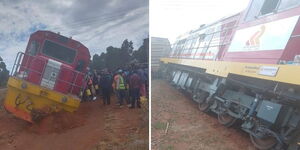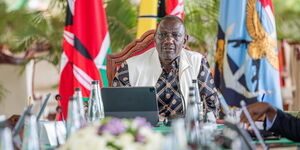Forex trading has existed for decades, but it remains a hot topic not just in Kenya but around the world.
A common question asked in various places is whether forex trading is a scam. The short answer is no. The long answer, however, is that there are a wide range of organized scams around forex, trading tips and recruitment into various groups, as in almost every other sector.
If done right and within the law, it could earn you a pretty penny. For some Kenyans, it is their main source of income while for others such as NTV journalist Dennis Okari, it is a side gig.
The journalist regularly shares insights into his trade deals on his social media pages. In July, for example, he shared how he made a profit of Ksh74,200 ($742) from a deposit of Ksh25,000 ($250) on one of the numerous online trading platforms.
So what exactly is forex trading and how does it work in Kenya? This article delves into common questions including how much you need to start, trading for beginners, resources including pdfs, integration with platforms including M-Pesa and universal tips to be a successful trader.
Forex itself is a combination of foreign currency and exchange. The foreign exchange, otherwise known as FX, is a worldwide marketplace for exchanging national currencies against one another. It is the largest, and also the most liquid, market in the world.
How Much You Need to Start Forex Trading in Kenya
How much do you need to start trading in Kenya? Well, most brokers and online trading platforms accept minimum deposits of up to $1 (Ksh100) and in some cases, even lower.
To make it worthwhile, however, traders are advised to put in larger sums. Most brokers recommend that you start with at least $100 (Ksh10,000) to facilitate the trades.
Traders make money by buying and selling currencies, benefiting on the difference between two currencies.
In Kenya, the forex trading market experienced a surge in interest after the Capital Markets Authority (CMA) began regulating the market in 2018 allowing retail traders, brokers and investors to participate in the market.
CMA does not regulate individual traders. It, however, regulates brokerage firms and traders are advised to select a CMA-regulated broker when choosing one, to ensure they are protected from fraudulent activities.
Several online trading platforms exist, some based locally while others are available to traders across the world. Some traders prefer local platforms that offer the ability to integrate with mobile money platforms such as M-Pesa making it easier to make deposits and receive payouts.
How to Start Forex Trading in Kenya
To start forex trading in Kenya, one needs to open a trading account with a online forex broker. Make sure you first do your research to ensure the broker is reputable .
Before actually trading, however, most brokers offer demo accounts which one can use to practice before trading with real money. Demo accounts come with a virtual deposit you can use to practice before making real trades.
Forex learning is an important part of the process, particularly for beginners. A wide range of resources exist online including video tutorials, books and PDF documents meant to guide beginners in understanding the forex market.
Some traders opt to work with more experienced counterparts to learn from them while starting out. Professional trading educators also exist to help those looking to learn before immersing themselves fully into the world of forex trading.
Successful Forex Traders in Kenya
Several Kenyans have minted profits from forex trading. Among the well-known successful forex traders in Kenya are Ken Githaiga, Paul Mugenda and Silah Obegi.
To become a successful trader, one needs to have a plan and stick to it. It is also important to learn about the market and understand it before plunging into trades.
Practice constantly, know your limits and avoid trading based on emotions.












